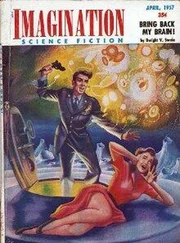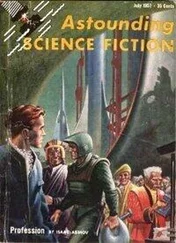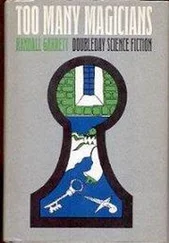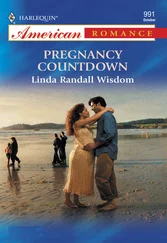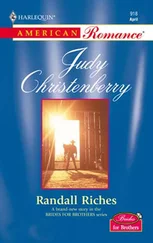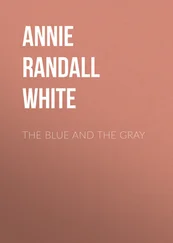“Madame Bouchard! She’s the one who should’ve told you!”
“She isn’t here!”
“All right, all right, listen to me, this is what you do! Tonight, when you are in the bedroom waiting…”
“Yes?”
But suddenly Nicolette didn’t know what to advise either. “Yes, let me think, let me think. Well, you don’t really have to do anything. Exactly! That’s it! He will come in and he will know just what to do!”
“What if he doesn’t?” The two young women stood blinking at each other. “I mean, I don’t know anything about such things, but did he appear to you to be someone who knew a great deal himself?”
Another knock at the door, and a voice from outside pleading, “Please, ladies! Please!”
“All right,” Nicolette said decisively. “You will lie down upon the bed, you will close your eyes, and you will say as softly as you can, ‘I am ready.’ Do that, and everything will be…acceptable.”
“1I am ready?’” Isabella repeated.
“1I am ready?’”
Arm in arm, the princess and her lady-in-waiting moved to the door. Nicolette opened the latch and pushed the door open, revealing dozens of relieved attendants dressed for the wedding and perspiring in their scarlet smocks trimmed in white ermine. “I am ready,” the princess declared, and with a slight glance at Nicolette and a faint smile upon her lips, the future queen of England walked slowly into the corridor to join the great procession that would take her into Westminster Abbey.
HE WEDDING WAS A BLUR FOR HER. IT WAS NOT THAT SHE missed all the details; quite the contrary, she felt and saw so many things that she could scarcely take them all in. Her attendants looked so beautiful, with flowers in their hair, sewn into garlands draped around their shoulders, strewn in petals at their feet; the flames of a thousand candles danced in ranks in the abbey to the tunes of harps and lutes; and the faces of the dignitaries crowded into the pews, all of them watching her.
But there was one face that would wipe all of this from her memory: Edward I of England, Longshanks himself. She saw the king for the first time in her life as she reached the altar of the abbey; she was just about to kneel to receive the initial blessing when she became aware of his presence. It was strange, this presence of the king; she had been with kings before and knew the strange sense that came into one’s stomach when a king was about. All attention was directed to him, and yet everyone pretended to be looking away. She sensed that same breathlessness as she came to the end of her walk down the abbey’s central aisle and looked in the direction that everyone else was pointedly not looking. There she saw Longshanks.
He was tall, as tall as they had said. But nothing she had heard, in France and later in the court in London, had prepared her for what she was seeing now, for he was handsome. There was no doubt about that. It was in his carriage more than his features; he stood like a statute, like a living statute, with the posture of a man who has never questioned his own judgment, has never had to. He was dressed in the grandest clothes of the kingdom; he wore his crown lightly as if he had been born with it on, and in effect he had. The face itself—well, some people had told her it was cruel. Certainly the nose was too long, the chin too sharp for his face to look kind. But his long dark hair was luxurious, the skin smooth, the—
The eyes! He turned them to her just then, and it was then that she understood what everyone had meant. There was no feeling in them, none at all. They were dead eyes, like one of those Greek statues in which the shape of the irises had been carved but the pupils had not. When he looked at her, it was clear to Isabella that he felt nothing. The young beautiful princess was used to being appraised, considered for her beauty, her value to the realm. Or if not appraised, then admired. But this man showed nothing, and Isabella was sure beyond doubt that he felt nothing. She had heard a story about him, how his wife had died while visiting him during a campaign against the Celts in Wales. Longshanks, so the story went, had been shattered by grief; he ordered her body carried back to London on the shoulders of his proudest soldiers. Wherever they stopped to rest and set the litter bearing her body down upon the earth, his builders were ordered to erect a cross. In the Norman French of Longshanks’s court, these were called chère reine crosses, for “precious queen.” English commoners, in that peculiar mongrel tongue they called the English language, corrupted the term into charging cross. It was the decree of a grieving man, a romantic, a man with a heart. The story had put Isabella off guard. This man who looked at her now, with those dead eyes, had no heart and no soul.
She went through the rest of the ceremony, repeating her vows wherever it was expected of her. Prince Edward became her husband in the same mechanical way. They did not kiss; they were not expected to. Later, Isabella would not remember the ceremony at all.
But she would never forget her first look at those eyes.
That night the attendants prepared a special wedding chamber for them in the new royal apartments she and Edward were to inhabit together. A table was placed before the bedroom fireplace and a special dinner laid out upon it, with lamb, fowl, fish, fresh fruits, vegetables, pastries—every rich food the kingdom could provide. And wine, too, and more flowers, all arrayed for them in the bedroom. A small army of servants must have worked on it, and yet they had all remained, and only for a moment. She gripped Isabella’s hands in her own, stared as if she had just spoken—though she had uttered not a word since their time together before the ceremony—and nodded, not once but many times. Then Nicolette too left her.
Isabella thought the prince would arrive at any moment. She sat down beside the fire to wait, for ever since she had seen her father-in-law, she had felt cold. But her new husband did not arrive. The ice in the wooden bucket around the wine melted, and an attendant tiptoed in to replace the water with more gray chunks from the palace ice house. Kitchen servants tiptoed in to take the food away and warm it again, but still Edward did not come.
Isabella fell asleep in the chair.
Later—she did not know how much later—she awoke to the sound of male laughter and the rattle of the latch at the door. Someone was fumbling at it as if staggered in. He was drunk. He was accompanied by another young man, the same one who had been with him at the first royal dinner she had attended.
They stopped laughing when they saw her; then Peter, her husband’s friend, burst into laughter again.
Isabella smiled, trying to understand the joke. But now her husband seemed to see no joke; he was looking at her. He then turned to Peter and stared blankly at him.
“I shall wait outside,” Peter said and laughed again. He left them, closing the door loudly.
Edward stared at her.
She stared at him. She rose from her chair.
He did not move.
She moved to him. He said nothing. There was sweat on his brow; his breath stank. He smelled as if he had vomited recently.
She knelt before him and kissed his hand, then rose. He did not move.
She walked to the bed, still fully dressed, and lay upon the fur. “I am ready,” she said.
She heard the door close and Peter laugh. Her husband had gone, and she was all alone.
Her wedding night.
THE NEXT MORNING, ISABELLA BREAKFASTED NOT IN THE royal apartments, but in the dining room of the guest quarters where she had previously stayed. When Nicolette found her, she was already half through with her meal. “There you are!” her friend sang brightly. “And up so… early.” Nicolette’s tone changed the instant she saw Isabella’s face. She sat down immediately and leaned close, her eyes asking the question.
Читать дальше

